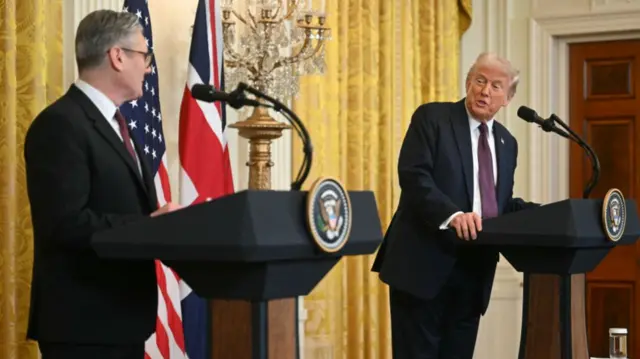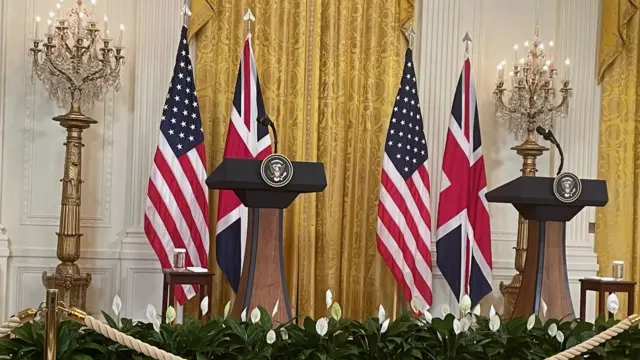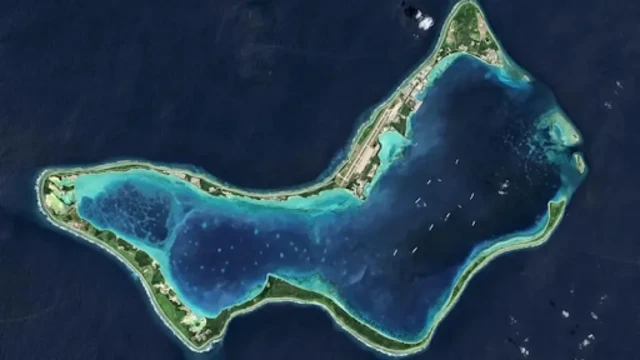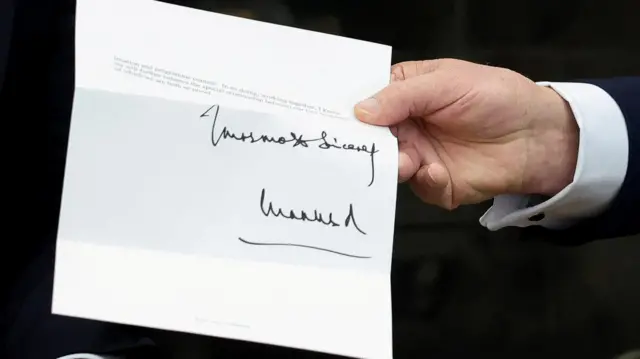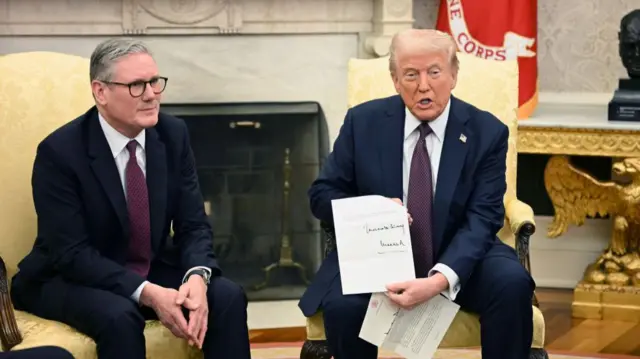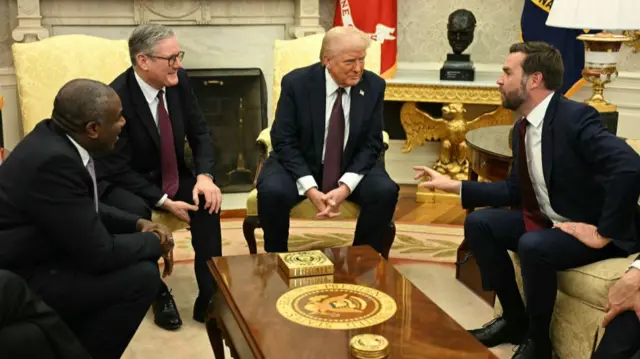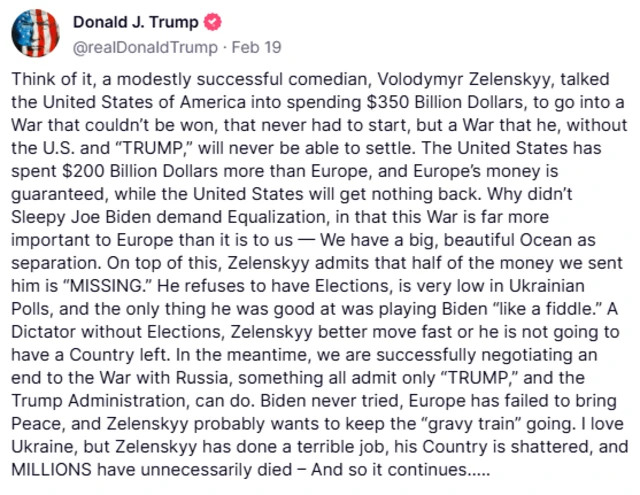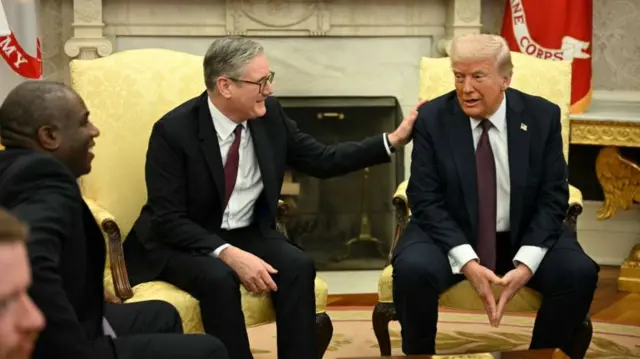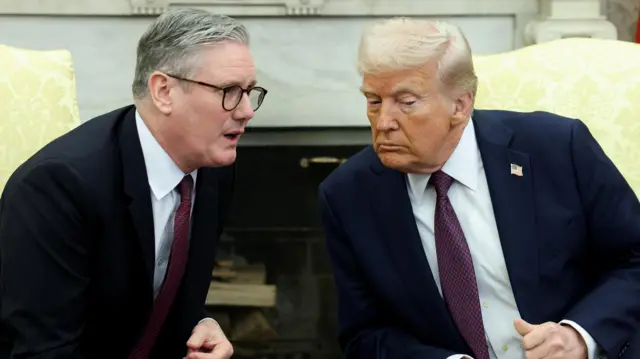Peace in Ukraine will be 'fairly soon or it won't be at all' - Trumppublished at 20:35 GMT 27 February
The bust of British wartime Prime Minister Winston Churchill is now back in rightful place in the Oval Office, Trump says.
He adds that the meetings between him and Starmer were productive, and that he gave the prime minister an update on his efforts to end the "bloody and horrible" war in Ukraine, adding it would never have happened if he was president.
He says about one million Ukrainians and Russians have been senselessly killed, adding that the actual number is much higher than that.
On peace in Ukraine, he says it will be "fairly soon or it won't be at all".
Trump says Ukraine peace deal will be 'fairly soon' or 'won't be at all'
